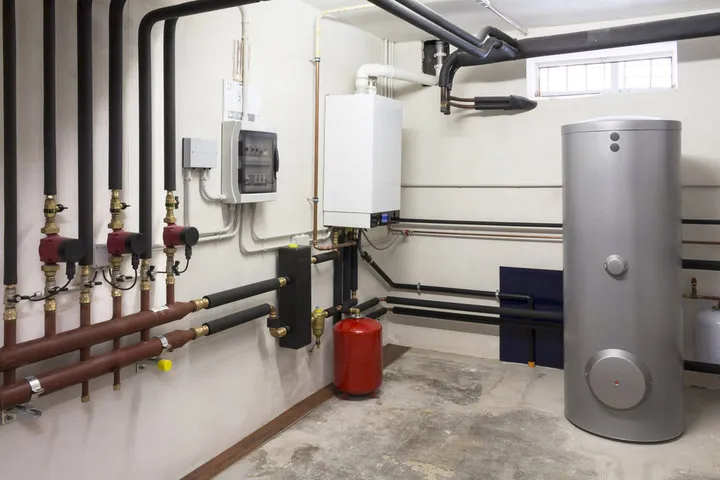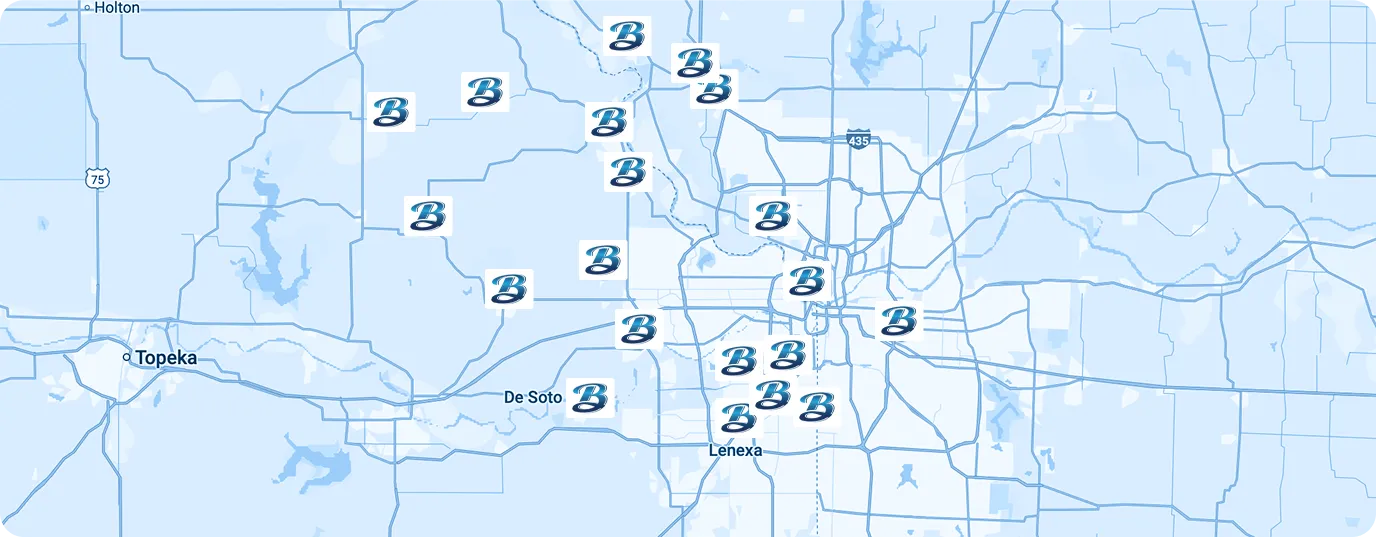Water Heater Repair in Overland Park, KS
Water Heater Repair in Overland Park, KS offers comprehensive diagnostics and repair for both tank and tankless systems. This page outlines common issues such as no hot water, leaks, strange noises, and temperature fluctuations, and explains the diagnostic steps technicians use to isolate root causes. It covers repair options, parts replacement, and when replacements are preferred, plus typical timelines and pricing. Safety checks, warranties, and aftercare guidance ensure long-term reliability and energy efficiency for Overland Park homes.
Water Heater Repair in Overland Park, KS
A reliable water heater is essential for comfort and daily routines in Overland Park, KS. Whether you have a traditional tank heater or a tankless unit, timely repairs prevent larger failures, protect your home from water damage, and restore hot water quickly. This page explains common water heater problems in Overland Park homes, how technicians diagnose and repair them, expected timelines and pricing considerations, safety checks and warranties, and practical aftercare to keep your system running longer.
Why water heater repair matters in Overland Park
Overland Park experiences hot, humid summers and cold winters that can stress water heating systems. Mineral-rich municipal water and local well conditions contribute to scale and sediment buildup inside tanks and on heat exchangers. Seasonal demand spikes during winter or holidays can accelerate wear. Prompt repair preserves efficiency, reduces energy bills, and avoids the mess and cost of a catastrophic tank leak.
Common water heater issues in Overland Park
- No hot water: Often caused by failed heating elements, gas valve problems, or tripped breakers on electric units. Tankless systems may show ignition or flow-sensor faults.
- Lukewarm water or short hot cycles: Sediment insulating elements, failing thermostats, or undersized units.
- Leaks: Tank corrosion, faulty pressure relief valves, loose fittings, or leaking connections at supply lines.
- Strange noises: Popping or rumbling usually indicates heavy sediment buildup in tank systems; sizzling may mean water contacting hot surfaces.
- Pilot or ignition problems: Gas systems can have dirty burners, failing thermocouples, or blocked vents.
- Low water pressure or temperature fluctuations: Scale buildup in tankless heat exchangers or mineral-clogged dip tubes in tanks.
- Frequent cycling or high energy use: Faulty thermostats, sediment buildup, or aging components.
Diagnostic process: what to expect
Technicians begin with a visual inspection of the unit and surrounding area for leaks or corrosion, then review your symptoms and appliance history. Common diagnostics include:
- Checking power and gas supply, breakers, and pilot/ignition systems.
- Measuring temperature differential across the heater and testing thermostats and elements.
- Inspecting pressure relief valve operation and drain valve condition.
- Performing combustion analysis on gas units to confirm safe and efficient burning.
- Running flow and pressure tests on tankless units and scanning error codes from the control board.
- If needed, a small drain and inspection for sediment level or a camera inspection for tank integrity.
This systematic approach isolates the root cause so repairs fix the problem for the long term rather than providing a temporary bandage.
Repairs and parts replacement: tank vs tankless
Tank systems
- Heating element replacement (electric): Quick swap of one or two elements and resealing.
- Thermostat replacement: Restores proper temperature control and cycling.
- Anode rod replacement: Prevents tank corrosion and extends tank life.
- Pressure relief valve and drain valve replacement: Stops leaks and ensures safe operation.
- Tank patch or replacement: Severe tank corrosion often requires full replacement to prevent sudden failure.
Tankless systems
- Descaling/scale management: High-priority in Overland Park due to mineral content. Descale and flush heat exchangers and install or recommend a water softening solution when needed.
- Ignition control and gas valve repair: Addresses failure to light or recurrent shut-downs.
- Flow sensor and thermistor replacement: Restores accurate temperature control and consistent operation.
- Burner or heat exchanger replacement: For aged or heavily damaged components, replacement may be required.
Technicians will explain repair options and whether parts are new OEM, aftermarket, or warrantied. When replacement is the safer long-term choice, they will outline efficiency gains and sizing considerations.
Emergency response and scheduling in Overland Park
Emergency water heater issues—active leaks, gas odor, or no hot water during freezing weather—require fast attention to protect the home and safety. Local service providers typically offer emergency dispatch for unsafe conditions and same-day or next-day appointments for non-emergency repairs. When scheduling, be prepared with your unit make, model, age, symptoms, and whether the unit is gas or electric; this helps the technician arrive with appropriate parts.
Typical timelines and pricing expectations
- Basic diagnostics and minor repairs: 1 to 3 hours on site.
- Element, thermostat, or valve replacements: Usually completed in a half day.
- Anode rods, pressure relief valves, and descaling: 1 to 4 hours depending on severity.
- Major repairs or heat exchanger replacement: Can take a half day to a full day; tank replacement is generally completed in a single service visit but may require additional plumbing or disposal time.Pricing depends on parts, labor, and the unit type. In Overland Park, expect variability driven by part availability, unit age, and whether system upgrades (improved venting, code compliance updates) are needed. Technicians should provide a clear estimate before beginning non-emergency work.
Technician qualifications and safety checks
Qualified technicians for Water Heater Repair in Overland Park, KS should be licensed and experienced with both tank and tankless systems. Key safety checks include:
- Gas leak detection using approved instruments and verifying proper shutoff operation.
- Combustion and venting analysis for gas-fired heaters to prevent carbon monoxide hazards.
- Electrical inspections for proper grounding, breaker sizing, and safe wiring connections.
- Pressure and temperature relief valve testing and verification of safe drain routing.
- Proper disposal of replaced tanks and components per local regulations.
Technicians will also document work performed and any recommendations for ongoing safety or efficiency improvements.
Warranty, aftercare, and maintenance
Most quality repairs include a workmanship or labor warranty period and parts warranties from manufacturers. Keep repair documentation and receipts for future warranty claims. Aftercare often includes:
- Annual or semi-annual maintenance plans to flush sediment, inspect anode rods, and verify burner or element condition.
- Recommendations for a softener or scale control if the local water quality promotes rapid mineral accumulation.
- Insulating hot water pipes and setting appropriate thermostat temperatures to reduce strain and energy use.
Membership or maintenance plans offer routine inspections that extend system life and reduce emergency repairs.
Practical tips to avoid future repairs
- Flush tank water heaters at least once a year to reduce sediment in Overland Park’s water conditions; tankless units benefit from descaling annually if water hardness is high.
- Replace anode rods every 3 to 5 years or sooner if corroded.
- Maintain adequate ventilation and clearances for gas units to prevent combustion issues.
- Insulate pipes and the first five feet of the hot water outlet to reduce heat loss.
- Monitor for slow leaks or dampness around the water heater and address plumbing connections promptly.
Thorough diagnostics, qualified technicians, and routine maintenance are the best ways to keep hot water reliable in Overland Park homes and avoid costly failures. For repair decisions, prioritize long-term safety and efficiency when evaluating repair versus replacement options.









